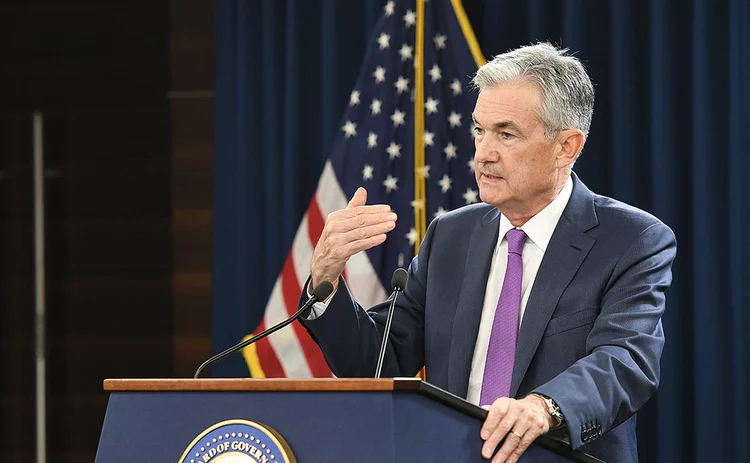
Fed asks watchdog to review controversial trading
Move follows resignation of Boston and Dallas heads, as Warren asks for SEC probe

The Federal Reserve announced on October 4 that it had asked its inspector-general to review certain controversial equities transactions by senior Fed officials.
The statement comes a week after two regional Fed presidents stepped down following media reports revealing they had invested in and traded assets affected by Fed policy. On October 1, Bloomberg also ran a story examining trades made by Fed vice-chair Richard Clarida in late February 2020.
In a statement, the Fed said it had asked the inspector-general “to initiate an independent review of whether trading activity by certain senior officials was in compliance with both the relevant ethics rules and the law”.
A spokesperson for the inspector-general told Central Banking: “[Fed chair Jerome] Powell has requested that we conduct an independent review of these matters. We have agreed to do so and have no further comment at this time.”
Senator Elizabeth Warren wrote to the chair of the Securities and Exchange Commission on October 4, asking the regulator to open an insider-trading probe.
Calling the Fed officials’ judgment “atrocious”, Warren asked the SEC to look into whether any of the figures involved had employed “material nonpublic information” in their trading activity. She added she was sponsoring a proposed law that would “ban individual stock ownership” by senior federal officials.
The SEC declined to comment on Warren’s letter.
Congress passed legislation in 1978 creating inspectors-general in several US government departments. In 1988, amendments to this act created inspectors-general at “designated federal agencies” including the Federal Reserve Board of Governors. The Fed chair appoints the inspector-general.
The Fed’s inspector-general can audit and investigate Federal Reserve programmes, receive whistleblower complaints and make recommendations for reform. They can also refer matters to the attorney-general for prosecution, but do not undertake prosecutions themselves. They make bi-annual reports to Congress.
Fed chair Powell had already announced an internal review of the central bank’s rules concerning equities holdings, transactions and disclosures. He told a Senate committee on September 28 that the Fed’s current ethics framework is “clearly really not working now”.
He added the central bank was “also looking carefully at the trading that was done to make sure that it’s in compliance with our rules and with the law”. Powell may have been referring to the inspector-general’s probe, which specifically examines the probity of these past trades.
The Federal Reserve board of governors and its employees are federal employees, and subject to general ethics rules applicable to all government employees. Regional reserve banks are technically non-governmental entities, but the board can regulate and oversee them.
The Federal Reserve does prevent officials from holding stakes in banks, but not in non-financial enterprises. The US also has a general conflict-of-interest law that applies to the Federal Reserve board. It provides for civil and criminal penalties for violations.
Who did what?
Rosengren, former leader of the Boston Fed, had stakes in real-estate investment trusts. These holdings stoked controversy because the Federal Reserve purchases mortgage-backed securities as part of its quantitative easing programme. Rosengren had voiced concerns about a housing bubble last June.
In his resignation letter, Rosengren said he was resigning on health grounds. He suffers from kidney disease, and said he was on the transplant list.
Kaplan of the Dallas Fed had a wide variety of investments in corporate stocks and exchange-traded funds (ETFs). He listed purchases and sales of these assets, mostly in excess of $1 million each. The Federal Reserve purchased ETFs to support markets during the pandemic’s early stages.
Other members of the Fed board of governors, including Powell, vice-chair Randal Quarles and Lael Brainard, report holding ETFs on asset disclosure forms.
According to Bloomberg’s examination of Clarida’s asset disclosure forms, the Fed vice-chair shifted between $1 million and $5 million from bonds to stocks and ETfs on February 27, 2020. Clarida’s move came one day before Powell made a statement about pandemic risks.
Five days after Clarida’s trade (March 3), the Federal Open Market Committee cut the federal funds rate by 50 basis points.
Then-president Donald Trump nominated Clarida to the board of governors in 2018 to fill the remnant of Daniel Tarullo’s term. Clarida’s term ends in January 2022. The White House has not announced whether he will be renominated.
Only users who have a paid subscription or are part of a corporate subscription are able to print or copy content.
To access these options, along with all other subscription benefits, please contact info@centralbanking.com or view our subscription options here: http://subscriptions.centralbanking.com/subscribe
You are currently unable to print this content. Please contact info@centralbanking.com to find out more.
You are currently unable to copy this content. Please contact info@centralbanking.com to find out more.
Copyright Infopro Digital Limited. All rights reserved.
As outlined in our terms and conditions, https://www.infopro-digital.com/terms-and-conditions/subscriptions/ (point 2.4), printing is limited to a single copy.
If you would like to purchase additional rights please email info@centralbanking.com
Copyright Infopro Digital Limited. All rights reserved.
You may share this content using our article tools. As outlined in our terms and conditions, https://www.infopro-digital.com/terms-and-conditions/subscriptions/ (clause 2.4), an Authorised User may only make one copy of the materials for their own personal use. You must also comply with the restrictions in clause 2.5.
If you would like to purchase additional rights please email info@centralbanking.com







